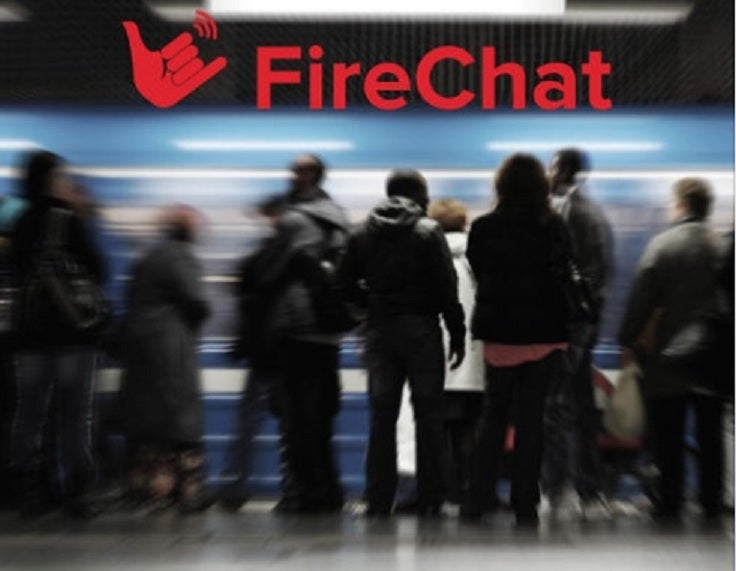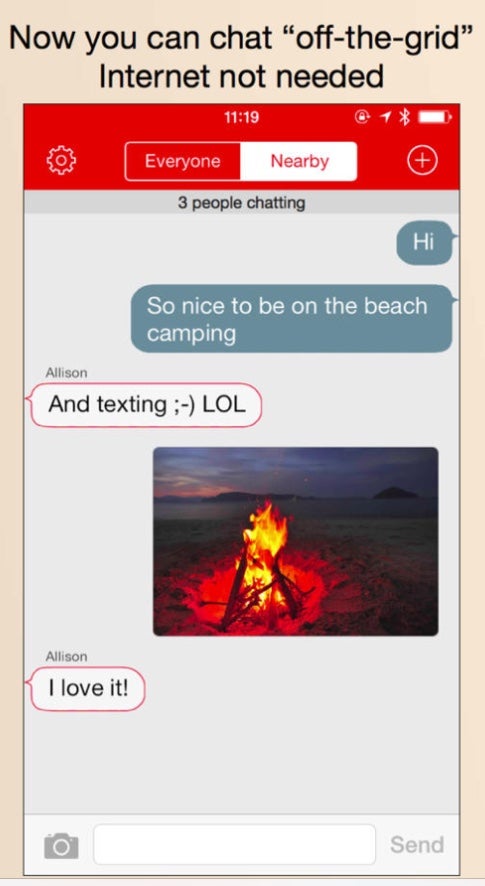FireChat: The internet-free messaging app that's keeping the Hong Kong protests connected
App uses combination of Bluetooth and WiFi

Your support helps us to tell the story
From reproductive rights to climate change to Big Tech, The Independent is on the ground when the story is developing. Whether it's investigating the financials of Elon Musk's pro-Trump PAC or producing our latest documentary, 'The A Word', which shines a light on the American women fighting for reproductive rights, we know how important it is to parse out the facts from the messaging.
At such a critical moment in US history, we need reporters on the ground. Your donation allows us to keep sending journalists to speak to both sides of the story.
The Independent is trusted by Americans across the entire political spectrum. And unlike many other quality news outlets, we choose not to lock Americans out of our reporting and analysis with paywalls. We believe quality journalism should be available to everyone, paid for by those who can afford it.
Your support makes all the difference."FireChat" sounds like a phony location-based sex line.
It's not, it's a messaging app for iOS.
We already have Whatsapp, Facebook messenger, Snapchat etc, what makes FireChat different?
You can chat "off the grid", even if there is no internet connection or mobile phone coverage.
How is that possible?
Instead of relying on a central server, it is based on peer-to-peer “mesh networking” and connects to nearby phones using Bluetooth and WiFi, with connectivity increasing as more people use it in an area.

Where might this be useful?
Seriously though.
In Hong Kong mostly, where pro-democracy protesters are using it to communicate amid fears of network shutdowns.
It's also been used by Iraqis and Taiwanese students during their anti-Beijing Sunflower Movement.
Aside from not being reliant on the internet (which some governments restrict), it is more clandestine and less traceable.
How popular is FireChat?
Over 100,000 people downloaded it in 24 hours in Hong Kong over the weekend, with the CEO saying that numbers are "booming" and up to 33,000 people were using the app at the same time.
Will it catch on in the Western world?
I'd say it has a better chance than Ello.
Join our commenting forum
Join thought-provoking conversations, follow other Independent readers and see their replies
0Comments